SIVERSK, Ukraine — A small Ukrainian town just miles from where Russian forces are fighting for control of one of the last holdout cities in the Donbas has been without power for weeks, residents wait for food to be brought in by volunteers, only one doctor and nurse remain at the hospital and cellphone reception is limited to a single spot.
After more than 100 days of fighting, parts of Ukraine are returning to some semblance of normalcy but on the front lines, people are suffering as Russian forces continue to advance in the east. The Kremlin’s forces now control 20 percent of Ukrainian territory as they continue to fight for control of Sievierodonetsk, an industrial city in the Donbas region.
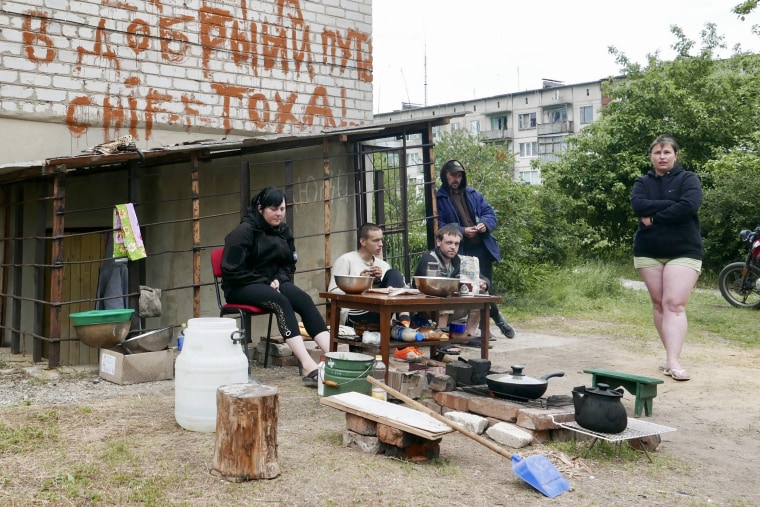
Siversk Mayor Andriy Chernaev said the threat of violent Russian occupation of the town is “a scary thing to think about.” He added, “All we can say is that we trust in our military forces and that they will protect us.”
He said he has encouraged people to evacuate the town. The initial population was around 11,000 people; now about half of those remain.
Vadim Khraptovich, a fast-driving, chain-smoking Ukrainian Protestant priest, has made it his mission to evacuate civilians from front-line villages. Wearing a flak jacket and driving a passenger van with a red cross emblazoned on the back, he goes town to town, offering rides out of the war zone.
For many here, he represents a last chance to escape the besieged towns and villages lying in Russia’s path.
“Every day I have to deal with emotionally and mentally hard things,” he said. “If I wasn’t a priest, the only solution for me would be drinking.”
He estimates he’s personally rescued 1,000 people since the start of the war, but it is not easy to convince everyone.
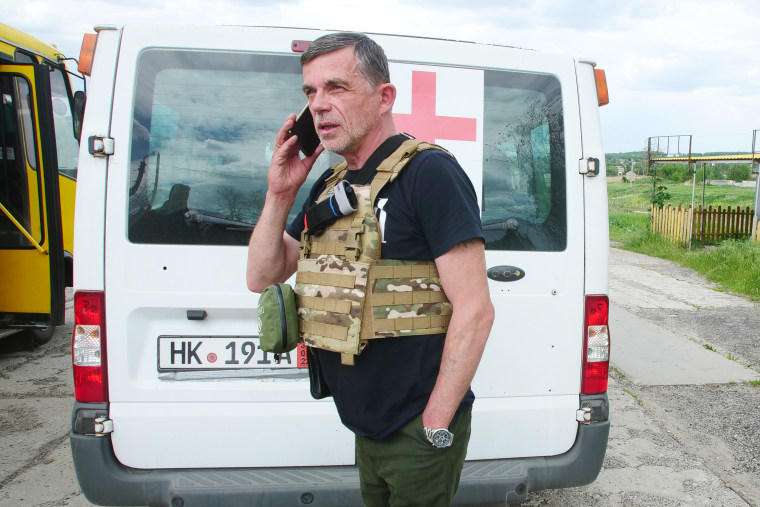
At a stop in Siversk, where heavy military vehicles rumble through the streets, Khraptovich knocked on the gate of 66-year-old Tatiana Artuhova.
As soon as she answered the door, he played an audio note from his phone: it was a message from her sister, Nina, who lives in Poland. In the message, Nina begged her to pack up and leave Siversk before it’s too late, promising an apartment and financial support for her and her family.
“She is telling you the right things,” Khraptovich said, urging Artuhova to get in the van. “I’m practically begging you.”
Artuhova hesitated. She supports her bedridden 95-year-old mother, who can’t walk and lives in the basement of her home, a dank space lit only by candlelight. Artuhova’s husband also recently suffered a stroke and has difficulty moving.
“I don’t know what to do,” she said, “my head is spinning.”
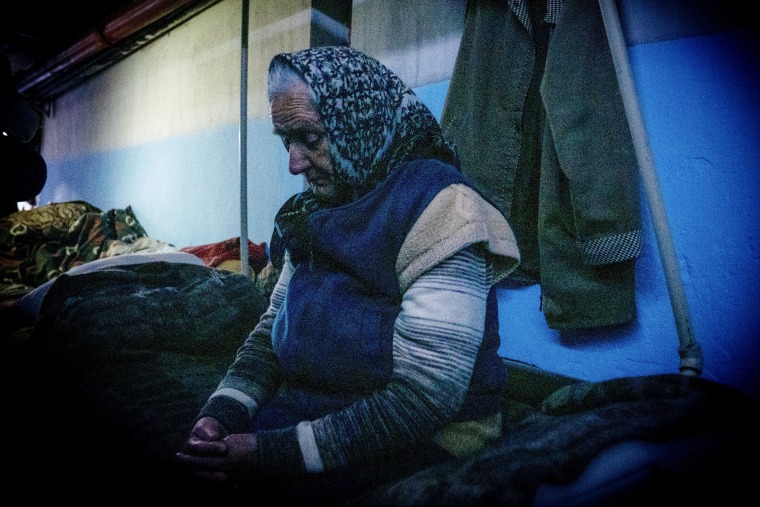
Many people in Siversk are facing a similar dilemma: stay despite the seemingly inevitable consequences of Russia’s advance or leave for an uncertain future.
While Siversk has been so far spared the worst of the fighting, the town sits right in the heart of Ukraine’s Donbas region, where the Russian military has focused its efforts since failing to take over the country’s capital, Kyiv, at the start of the war. The front line is just a couple of miles away. The sound of bombs from the grinding artillery war can constantly be heard thudding in the near distance.
Over the course of the war, the town has become increasingly isolated. Without power, families cook meals on open fires in the streets. When volunteers come to deliver fresh bread, residents shove and elbow their way to the front of the line.
The hospital is also without power, has limited medicines and houses about 40 people in the dark corridors underneath the building to shelter from the bombing.
The only cellphone reception is on a single hilltop, where teenagers and soldiers anxiously amble around in search of a signal. Twice a week, residents crowd around generators behind the city council building to charge their phones.
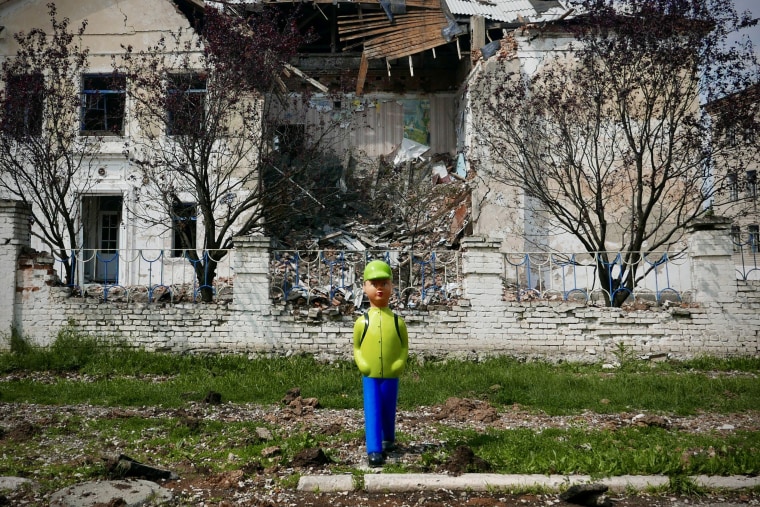
Lilia Gobiletski said she can’t get the pills her 11-year-old son, Artur, needs for his iron deficiency because the pharmacies are all closed. His stomach grumbles loudly, and he often feels so sick that he can’t get out of bed.
Artur, who lives with his parents and older brother, said most of his friends have already left town. He used to love going to school but the building was destroyed two weeks ago in an apparent Russian bombing.
“I walk in my town, and I see nobody,” he said, standing in the ruins of his schoolhouse. “There is no one to talk to, no one to play with, all the shops are closed.”
Sitting at her kitchen table, Gobiletski, a former security guard at a nearby oil company, reminisced about life before the war.
“We went for holidays to the sea, we studied, we went to the hospitals to fix our problems,” she said. “Nobody could imagine that in the 21st century, that this would be our life.”
Despite the difficulties, news of the ongoing conflict does reach the residents of Siversk, who know about the fall of Mariupol, Kherson and Melitopol and the brutal fight for control of the city of Sievierodonetsk, just 16 miles away
Halyna, 71, who declined to give her last name for privacy reasons, sleeps in a room under her apartment building with 14 other people. She has lived her whole life in Siversk, and said she would leave if she could, but stays because she doesn’t have the money to flee.
“Why are we punished like this?” she cried. “For what reason are all these people being tortured?
As for Gobiletski, she says she stays because of a strong devotion to her home.
“I love my city, I love the streets, my neighbors,” she said. “My father is buried here, and it means so much to me. I want to be near him as long as I can.”

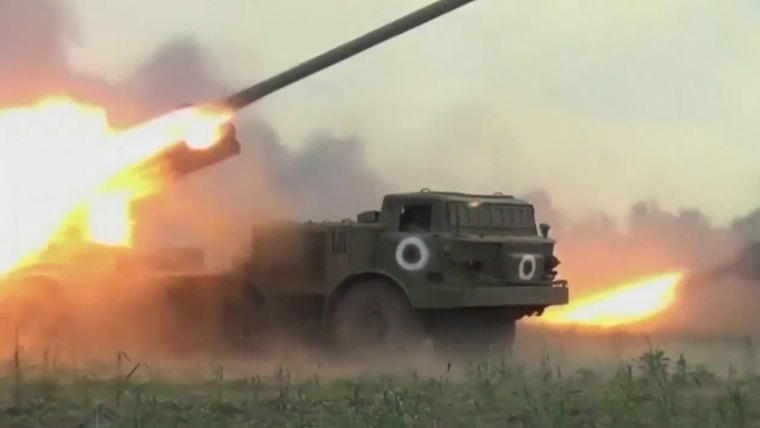
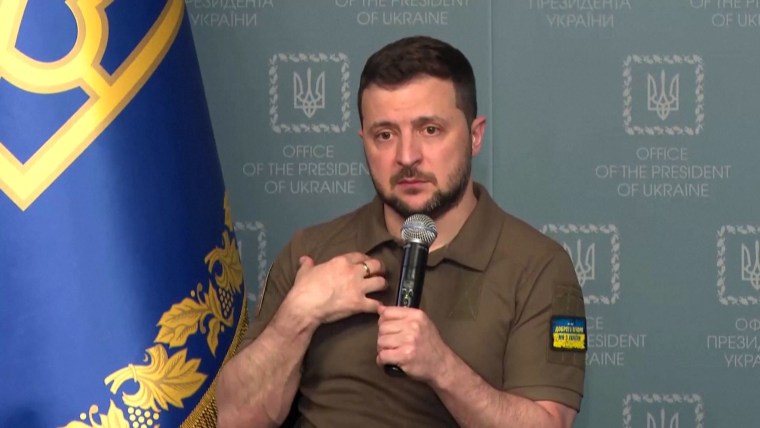

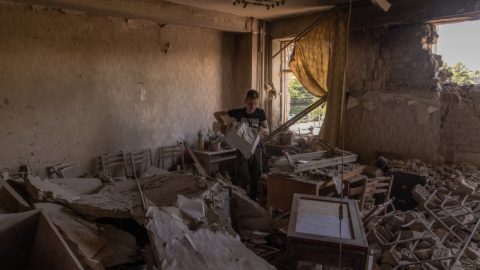


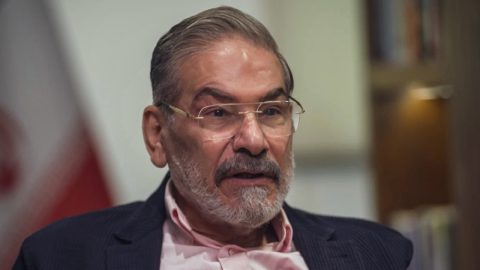
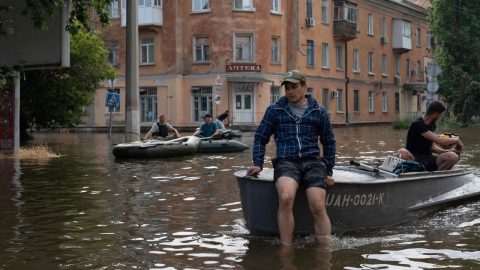

Recent Comments